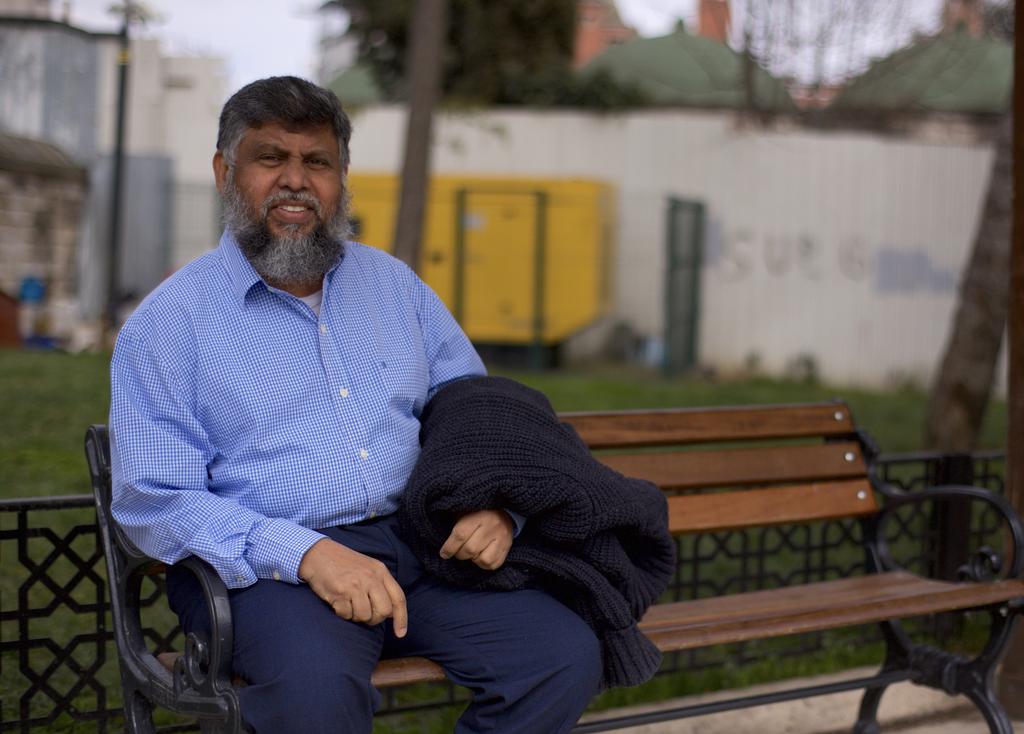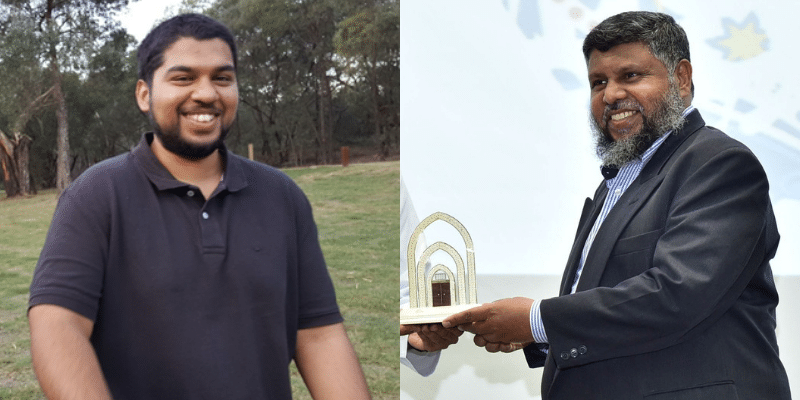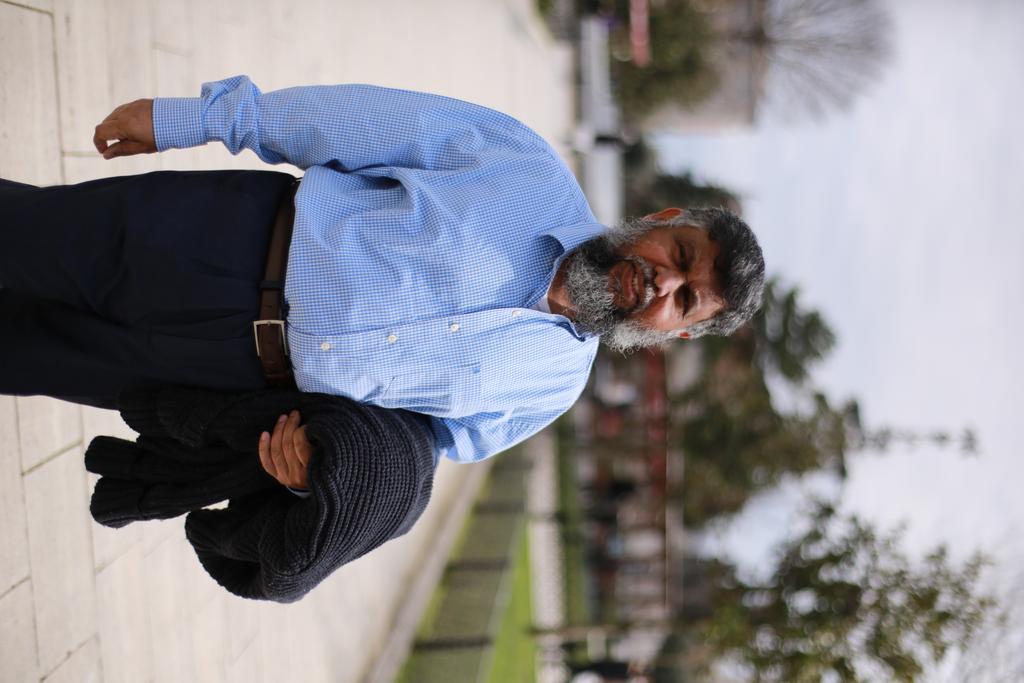
Professor Lukman Thalib can still vividly remember that day his home was raided. As the head of the Department of Public Health at Qatar University and a member of the country’s Scientific Committee against Covid-19, the highly respected Australian public health professor was chairing a meeting on Zoom, when he heard his wife screaming downstairs.
“I came down and there were 4 to 5 people in plain clothes inside my house,” he says. “It was as though they took over my house… We were terrified.”
That evening, 27 July 2020, marked the beginning of an ordeal that spread across Qatar, Australia and Sri Lanka, and would wreak havoc on the Thalib family.
“I had no idea what was happening,” Prof Thalib told the Tamil Guardian. “I asked them who they are and requested to see their identity, to which I was not provided any answers. Instead, they began to instruct me on where to sit and I had no choice but to submit and follow their order given the extreme fear me and my family were feeling.”
“I still thought I was living in a country with law and order,” he continued. “Unfortunately, I was proven completely wrong.”
That evening, 58-year-old Prof Thalib and his 24-year-old son Ismail Thalib were arrested and taking into detention by Qatari security forces. No reason was given for their arrest by the plain clothed individuals, who had restrained the family’s security guard at their Doha compound and disabled all security cameras on their way in. The pair were taken to an undisclosed location and kept incommunicado, where they allege they were tortured after being subjected to sleep deprivation, stress positions, sensory bombardment and "use of noxious gasses to dull prisoners", according to UK advocacy group CAGE.
“I had no contact with the outside world,” he added, stating that he did not even know his son had been detained alongside him. “I was not allowed to sleep for days on end and was tortured systematically in a hauntingly calculated way. I began to lose trust in everything and everyone. At times, I thought I lost my mind.”

Ismail Thalib (left) and Prof Lukman Thalib (right).
It would be 37 days until Prof Thalib was allowed to contact his family. When he did, he not only discovered his son had been detained alongside him, but also that his family in Sri Lanka had been subjected to harassment from the Rajapaksa regime that had recently returned to power. “Within weeks of my arbitrary arrest, our relatives residing in Sri Lanka were being harassed by government officials,” he said. “This harassment and intimidation which was not based on any legal or formal investigation of any kind unfortunately is an ongoing ordeal they are faced with to this day.”
The Thalib family allege that their detention was part of a larger “conspiracy and witch-hunt” and is taking place “within a broader context of repression and persecution against the Sri Lankan Muslim minority which is spearheaded by the Rajapaksa government in alliance with extremist ultranationalist entities”. The raids came in the wake of the 2019 Easter Sunday attacks that killed hundreds across the island. The Sri Lankan government faced intense scrutiny over the attacks, which took place despite reports of several warnings to government and security officials, who were made aware that an attack was imminent.
Sri Lanka’s Presidential Commission of Inquiry (PCoI) however accuses Prof Thalib and his family of facilitating the travel of members of terrorist groups to Syria for arms training and helping connect the Easter Sunday attackers with other militants. The professor vociferously denies the Sri Lankan claims and has appealed to the United Nations Human Rights Committee to intervene, with his lawyers recently making an application under the Optional Protocol to the United Nations Covenant on Civil and Political Rights. He told The Guardian that the Sri Lankan claims were “completely slanderous and malicious in nature and constitute a direct cowardly attack on our reputation which has shocked me and my family”.
“I have never been contacted by the Sri Lankan government or had any issues in Sri Lanka,” he continued. “But the fact these allegations are coming out now suggest that the Sri Lankan government played some part in my detention and they are thwarting any effort by me and my family to recover from what we have been through, we are being used as a scapegoat.”
Nevertheless, Prof Thalib was held in detention for several months before finally being released by Qatari authorities.
“We were held arbitrarily and had no access to due process which is against all international conventions,” he told the Tamil Guardian. “I learned from my family that Qatari authorities did not acknowledge our detention officially. My family checked with authorities on many occasions to find out where we were and what had happened to us. However they were not provided with any information concerning our detention. Upon my release the Australian embassy confirmed with me that the Qataris had informed Australian foreign affairs department that we faced no charges.”
Back in Australia, several other key developments were taking place. Just weeks after their detention, Prof Thalib’s other son Ahmed, was named by the US Treasury as having “materially assisted, sponsored, or provided financial, material, or technological support for, or goods or services” in support of Al-Qaeda. Sanctions were placed on the younger Ahmed Luqman Thalib and his Melbourne-based gemstone trading business Talib and Sons.
“Talib has had financial dealings in a number of countries and is involved in dealing gemstones, which provide him with the ability to move funds internationally for the benefit of al-Qa’ida,” said the US. “Talib conducts business around the world, including in Brazil, Colombia, Sri Lanka, Tanzania, Turkey, and the Gulf,” it added.
Shortly afterwards, Australian police and the Australian Security Intelligence Organisation raided his home. Earlier this year, he was arrested and has been charged with one count of “preparations for foreign incursions into foreign states for purpose of engaging in hostile activities” in 2013. It is alleged that whilst in Turkey, he helped facilitate the travel of a man to engaged in armed hostilities in Syria.
“[The man] was provided with the contact details, locations to attend and detailed instructions of how to enter Syria with Khattab Jamaat and fight against the Assad regime,” investigators alleged. They also claim Ahmed Thalib was in possession of a Ciphr encrypted phone and Venezuelan passport. He has since been denied bail whilst the case continues.
Prof Thalib told the Tamil Guardian of his son Ahmed’s and daughter Maryam’s involvement with the ‘Freedom Flotilla’ that was heading to Gaza to deliver humanitarian aid in 2010 and was subsequently raided by Israeli forces. “My son was critically injured through live bullets shot at him from military helicopter while in international waters,” he said. “Ever since that time until this very day, my son Ahmed has been subjected to harassment as well as smear campaigns in the media,” Prof Thalib claimed.
“I have learnt since [the arrest], that Ahmed was being threatened by the Australian security services to work as an informant for them, that they could make the US designation go away and if he didn’t they could make things difficult for him,” Prof Thalib commented, when asked about Ahmed’s arrest.
“I am not in a position to make any conclusions. All I can say is that the thought of any false confessions I may have given against even my own son is a thought that haunts me every passing day.”
Whilst Ahmed’s case continues, Prof Thalib meanwhile is launching his own legal action. “The application for the United Nations Human Rights Committee against violations by Sri Lanka explained above is the first of applications made by his legal team,” said a press release from the family. “Preparatory work continues for other applications and lawsuits in order to put an end to the injustices he is facing and for justice to be served.”
“Our client, Professor Thalib, has not been offered any opportunity to reject the allegations prior to them being unethically leaked to the press and officially published in the Presidential Commission of Inquiry report,” said Naila Ahmed, Casework Manager for CAGE. “This flies in the face of any semblance of due process and is a flagrant violation of the right to a fair hearing. We call on the UN to act robustly to end Sri Lanka’s defamation of Professor Thalib.”
With investigations ongoing, the professor has since left Qatar and are planning to return to Australia. “My family and I are innocent and have nothing to hide,” he said. “Our fight for justice will continue and we will refuse to be manipulated in any way.”

